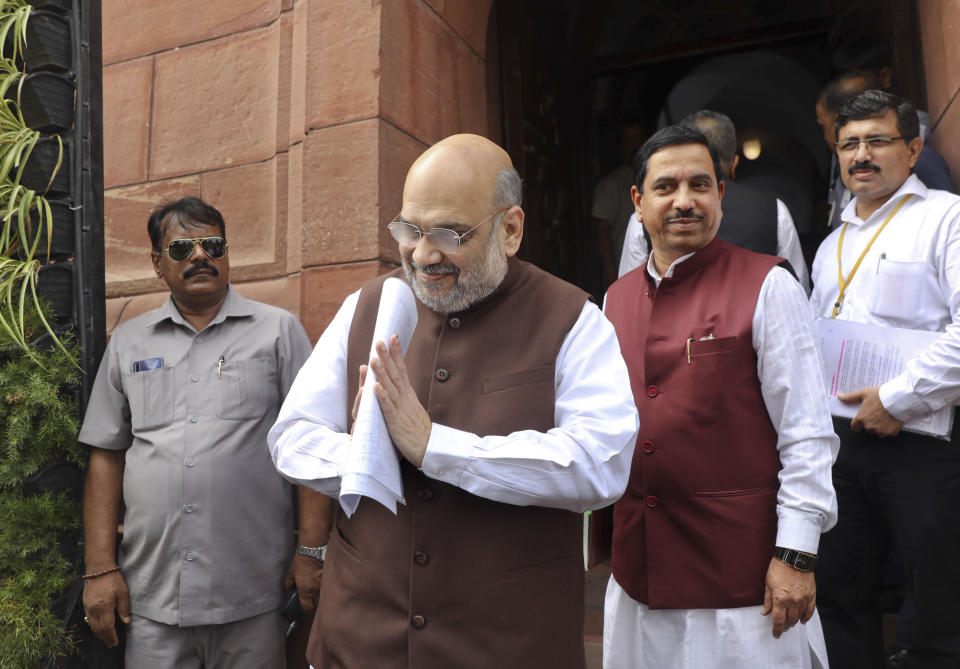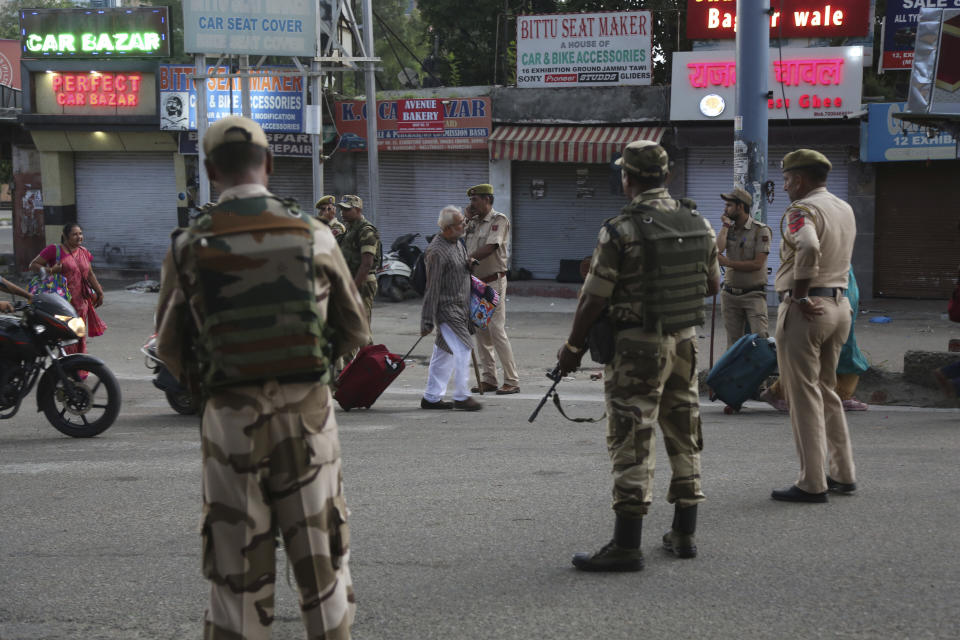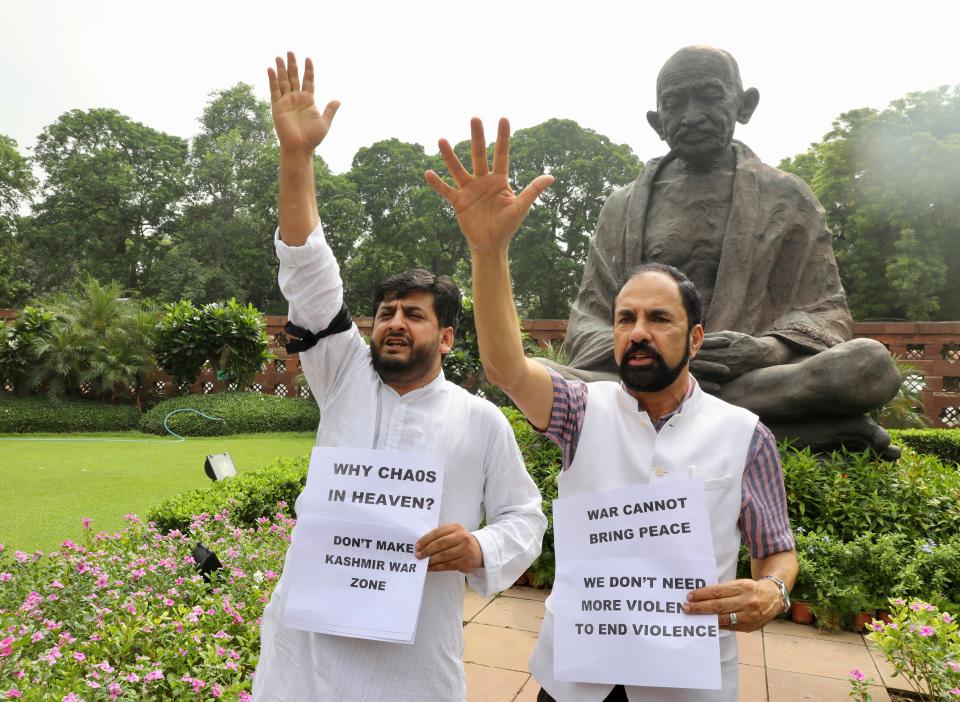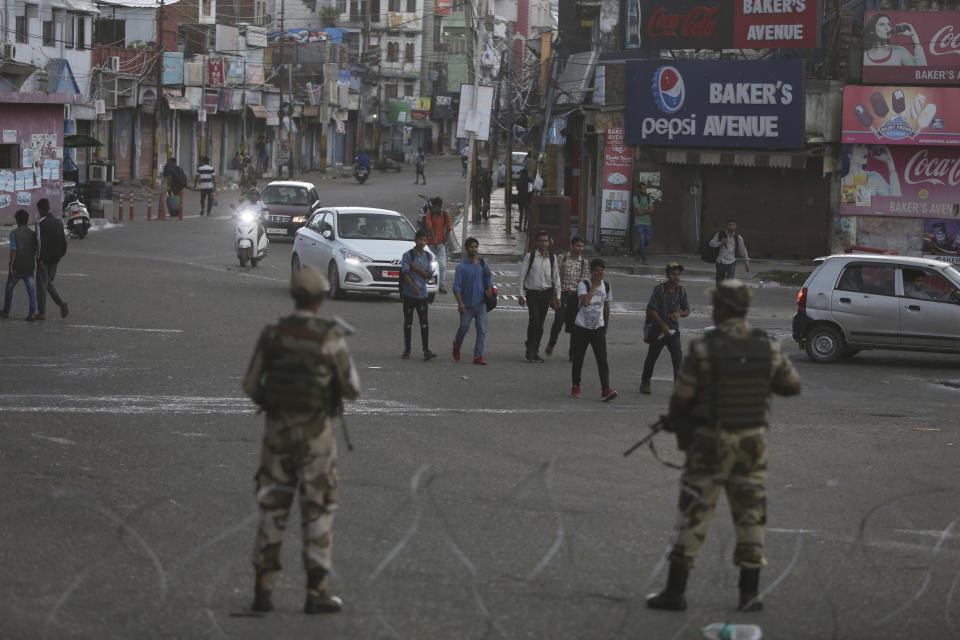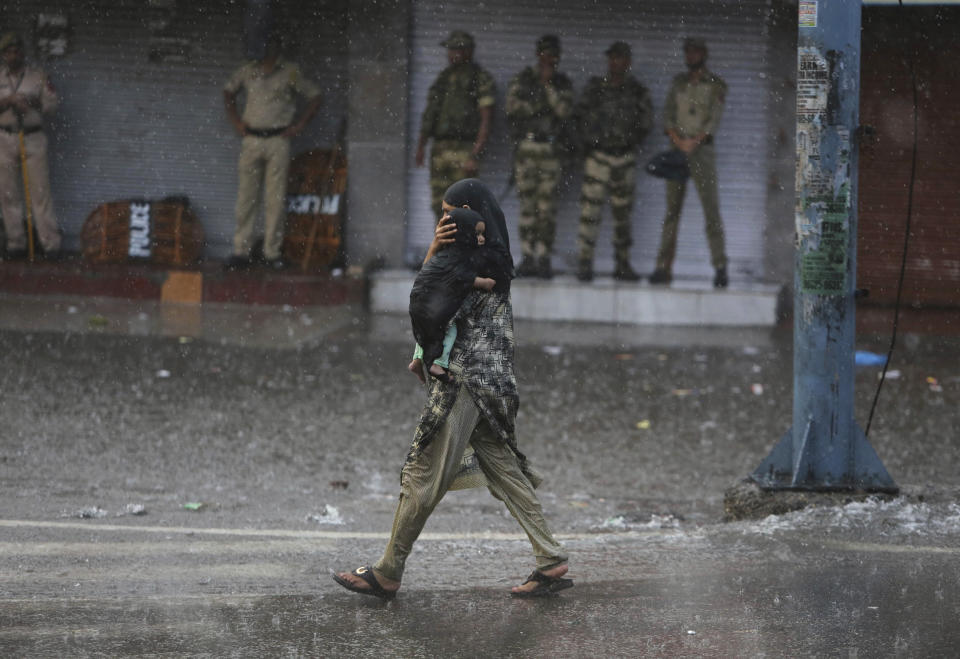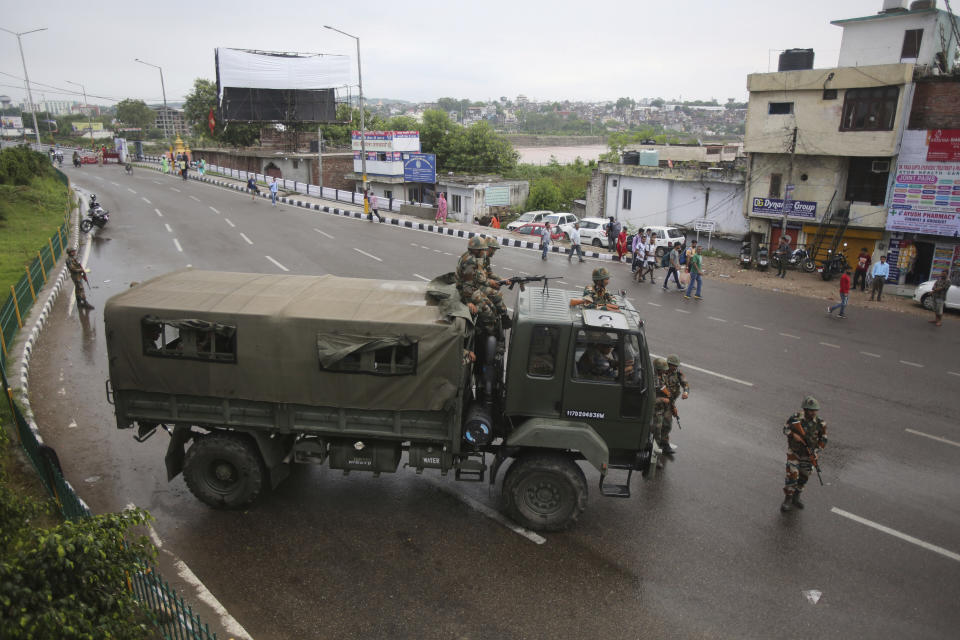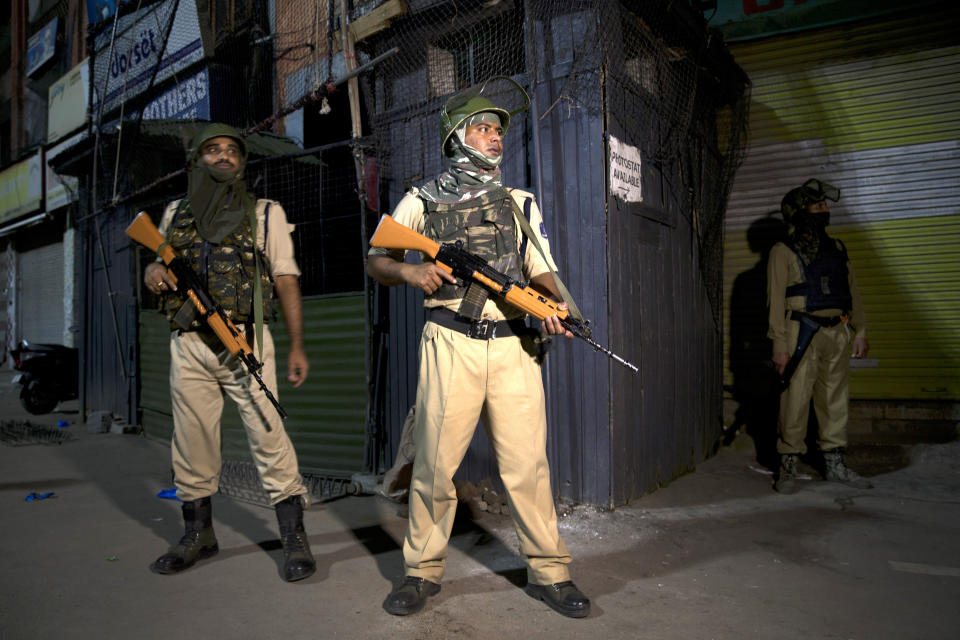Q&A: India's change to disputed Kashmir's status
NEW DELHI (AP) — India's government used a presidential order to revoke the special constitutional status of its portion of Kashmir on Monday amid uproar in Parliament and a huge troop deployment in the disputed region.
The constitutional provision had prohibited Indians from outside the region from buying land or permanently settling in the Muslim-majority territory.
Some questions and answers on the issue:
___
WHAT IS HAPPENING?
The Hindu nationalist-led government of Indian Prime Minister Narendra Modi revoked Article 370 of India's constitution on Monday by presidential order. The law confers special rights to permanent residents of the state of Jammu and Kashmir.
Modi's home minister, Amit Shah, says the long-standing rights that preceded India's independence from British rule in 1947 were "temporary."
Critics of such a measure say that in doing away with Article 370, the government hopes to change Indian-controlled Kashmir's Muslim-majority demographics by allowing in a flood of new Hindu residents.
To tackle any law and order situation, the region has been put under a heavy security cover, with prohibitory orders in place against public assembly. Top pro-India leaders have been put under house arrest and internet and phone service have been cut.
Shah told members of the upper house that the government has also decided to split the state into two union territories — Jammu and Kashmir, which will have a legislature, and Ladakh, which will be ruled directly by the central government without a legislature of its own.
Kashmir is divided between archrivals India and Pakistan but claimed by both in its entirety.
___
WHAT IS KASHMIR'S SPECIAL STATUS?
Article 35A of India's constitution permits the local legislature in Indian-controlled Kashmir to define permanent residents of the region. The article came into being in 1954 by a presidential order under the constitution's Article 370, which grants special autonomous status to Jammu and Kashmir state.
Article 35A forbids Indians from outside the state from permanently settling, buying land, holding local government jobs or winning education scholarships in the region.
The article, referred to as the Permanent Residents Law, also bars female residents of Jammu and Kashmir from property rights in the event that they marry a person from outside the state. The provision also extends to such women's children.
While Article 35A has remained unchanged, some aspects of Article 370 have been diluted over the decades.
Critics of Article 35A say the provision did not have parliamentary sanction, and that it discriminates against women.
___
HOW DID ARTICLE 35A COME ABOUT?
A 1927 order by the administration of the state of Jammu and Kashmir gave the state's subjects exclusive hereditary rights. Two months after India won independence from British rule in August 1947, Maharaja Hari Singh, the then-ruler of Jammu and Kashmir, signed a Treaty of Accession for the state to join the rest of the union, formalized in Article 370 of the Indian constitution.
Further discussions culminated in the 1952 Delhi Agreement, a presidential order that extended Indian citizenship to the residents of the state but left the maharaja's privileges for residents intact.
___
HOW CAN IT BE REPEALED?
Article 370(3) of the Indian constitution permits revocation of the law by presidential order. However, such an order must be introduced before the state's Constituent Assembly. Since that body was dissolved in 1957, experts have different views on the abrogation of the law, with some believing it needs approval by state lawmakers and others seeing a presidential order as sufficient.
The validity of Article 35A has been brought before India's Supreme Court. Bharatiya Janata Party members have said that if the court upholds the provision, the Modi-led government will revoke it by presidential order.
___
WHAT HAPPENS NOW?
Now that Kashmir's special status has been repealed, people from the rest of India will have the right to acquire property in the region and settle there permanently. Kashmiris fear this will lead to a demographic transformation of the region from majority Muslim to majority Hindu.
Pakistan's foreign ministry said India's action violates U.N. resolutions. The United Nations adopted resolutions after India and Pakistan fought a war over Kashmir in 1948 that allowed for Kashmiri self-determination. Pakistani officials say India was trying to void that right.
The foreign ministry's statement said Pakistan will "exercise all possible options" to block India's move.
President Donald Trump has offered to mediate between India and Pakistan on the issue of Kashmir. While Pakistan has welcomed the offer, India has repeatedly rejected it, most recently on Monday, saying the dispute is between the two countries.
___
Associated Press writer Emily Schmall contributed to this report.
